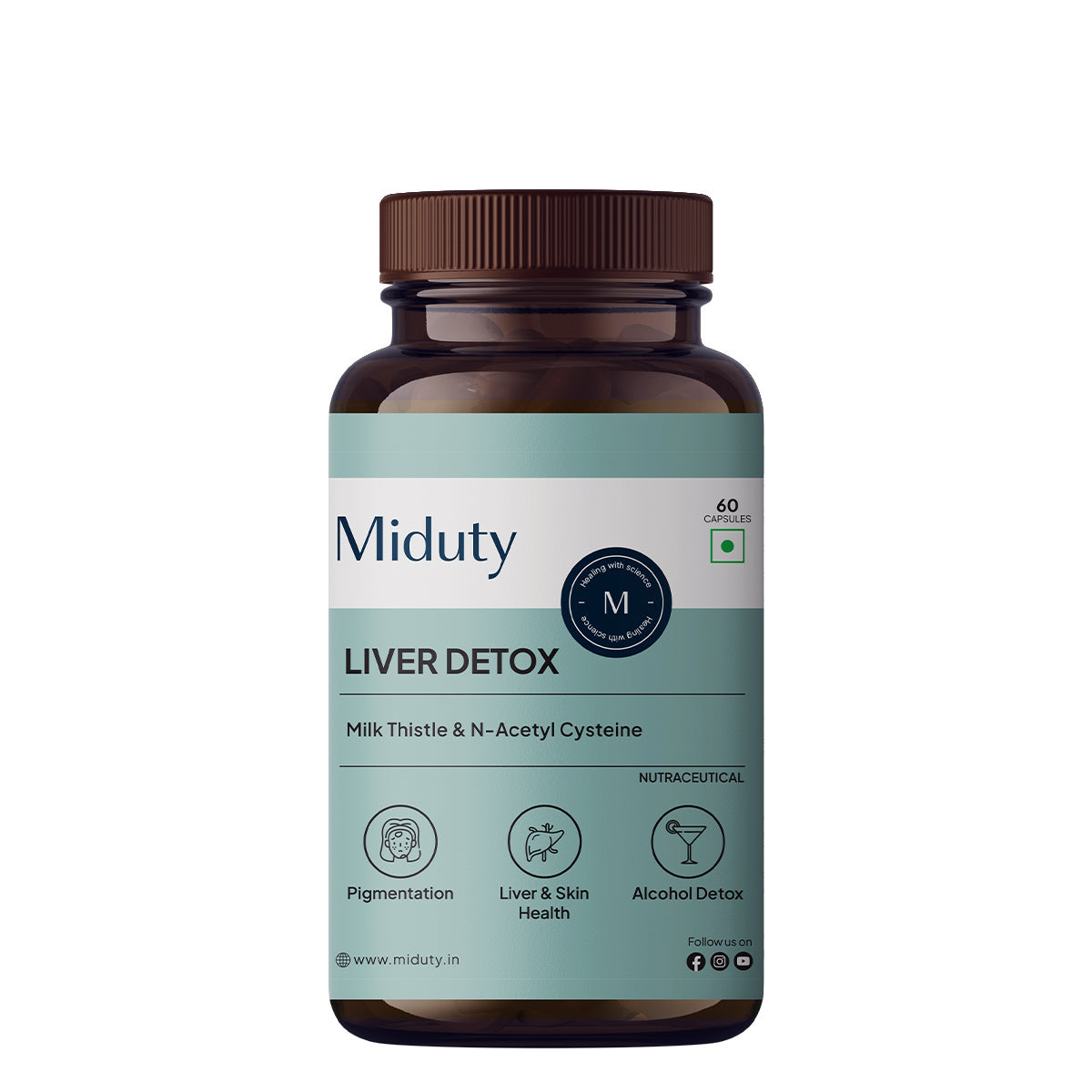
5 Effective Remedies for Silent Symptoms of Magnesium Deficiency
 Share
Share
Have you ever stopped to think about the unsung heroes in your body—the ones that keep everything running smoothly behind the scenes? You might have heard about the importance of vitamins and minerals, but there's one mineral that often flies under the radar, despite being a vital player in your overall health: magnesium.
Think of magnesium as the backstage crew of your body's performance—essential, hardworking, but often overlooked. From the beat of your heart to the strength in your bones, this unassuming mineral is involved in a wide range of critical functions, and yet many people are blissfully unaware of its significance.
In this blog, I'll break down the importance of magnesium in simple, everyday language. You don't need to be a scientist to understand how this unassuming mineral can impact your life in profound ways. Let's dive into the world of magnesium, a mineral that's quietly working wonders inside you every day.
The Importance of Magnesium
When it comes to essential minerals, magnesium often takes a backseat to more well-known nutrients like calcium and iron. However, magnesium is a powerhouse mineral that plays a crucial role in numerous bodily functions. Despite its importance, many people suffer from a magnesium deficiency without even realizing it.
Magnesium is a mineral that's involved in over 300 biochemical reactions in the body. It's a cofactor for enzymes that are responsible for a wide range of functions, including energy production, muscle and nerve function, blood glucose control, and blood pressure regulation. Magnesium is also essential for the synthesis of DNA, RNA, and proteins. In simple terms, it's a vital component for the proper functioning of our cells and, therefore, our entire body.

What are the Causes of Magnesium Deficiency?
Not having enough magnesium in your body can happen for a few reasons. One main reason is not eating foods that have a lot of magnesium, like green vegetables, nuts, and whole grains.
Some health problems like diabetes, Crohn's disease, and celiac disease can also make it hard for your body to use magnesium properly. Certain medicines like diuretics and proton pump inhibitors can cause magnesium levels to drop.
Diuretics make your body get rid of magnesium through urine, and proton pump inhibitors can stop your body from absorbing magnesium from food.
If you're really stressed or drink a lot of alcohol, these things can make your magnesium levels even lower, leading to magnesium deficiency.
What are the Silent Symptoms of Magnesium Deficiency?
Before we delve into remedies, it's important to understand how to recognize the signs and symptoms of magnesium deficiency. Some common indicators include:
- Muscle Cramps and Spasms: One of the most noticeable symptoms of magnesium deficiency is muscle cramps and spasms. These can occur in various parts of the body and can be painful and persistent.
- Fatigue and Weakness: Magnesium plays a significant role in energy production. A deficiency can lead to fatigue, weakness, and a general lack of energy.

- Nausea and Vomiting: Some people with magnesium deficiency may experience nausea and even vomiting.
- Abnormal Heart Rhythms: Magnesium is essential for proper heart function. Deficiency can lead to irregular heart rhythms or palpitations.
- Tingling and Numbness: Magnesium deficiency may cause tingling and numbness, particularly in the hands and feet.
- Personality Changes: Changes in mood, such as depression and anxiety, can be associated with magnesium deficiency.
- Hypertension: Research published in the National Library of Medicine suggests that low magnesium levels may contribute to high blood pressure.
- Osteoporosis: Magnesium is critical for bone health. Low levels can contribute to the development of osteoporosis.
- Headaches and Migraines: According to the research published in the National Library of Medicine, Magnesium deficiency has been linked to increased occurrence of headaches and migraines.
Top Remedies for Reversing The Silent Symptoms of Magnesium Deficiency
Now that we've unveiled the subtle signs of magnesium deficiency, let's dive into the ultimate solutions to reclaim your well-being:
- Revamp Your Plate: Your journey begins with a dietary makeover. Incorporate an array of magnesium-rich foods into your meals. leafy greens (such as spinach and kale), nuts (like almonds and cashews), seeds (like pumpkin and sunflower seeds), whole grains, and legumes. By diversifying your diet and focusing on these foods, you can boost your magnesium intake significantly.
- Supplements for Supercharge: When your magnesium levels need an extra boost, supplements come to the rescue. Explore various forms like magnesium citrate, magnesium oxide, or magnesium glycinate. It's wise to consult a healthcare pro to pinpoint the perfect supplement for your unique needs and ensure accurate dosing.

Experience the unmatched magic of Miduty Magnesium Relax What sets us apart? Our secret is magnesium bisglycinate, a chelated marvel that your body craves. Unleash its superior bioavailability for maximum impact. With magnesium as the star, expect natural, effective relief!
- Epsom Salt Baths: Epsom salt is a magnesium sulfate compound that can be absorbed through the skin. Research published in the National Library of Medicine suggests Taking Epsom salt baths can help increase your magnesium levels and relieve muscle cramps and tension. Add a cup of Epsom salt to your warm bathwater and soak for about 20 minutes.
- Stress-Busting Magnesium: Unrelenting stress can rob your body of magnesium. Counteract it with mindfulness practices like yoga, meditation, and deep breathing, restoring your magnesium balance.
- Avoid Processed Foods: Processed foods are often low in magnesium and high in other nutrients that can compete with magnesium absorption. Reducing your intake of processed foods and focusing on whole, unprocessed options can improve your magnesium status.
Buy Now Miduty Magnesium Relax
Final Words
Magnesium deficiency is a common issue that can lead to various health problems. Recognizing the signs and symptoms, understanding the causes, and implementing remedies to manage this deficiency is crucial for maintaining overall health and well-being.
By making dietary changes, considering nutritional supplements, adopting a healthier lifestyle, and addressing underlying health conditions and medications, you can take proactive steps to ensure your magnesium levels are within a healthy range.
Remember to consult with a healthcare professional before making significant dietary changes or starting any new supplements to ensure they are appropriate for your individual needs.

